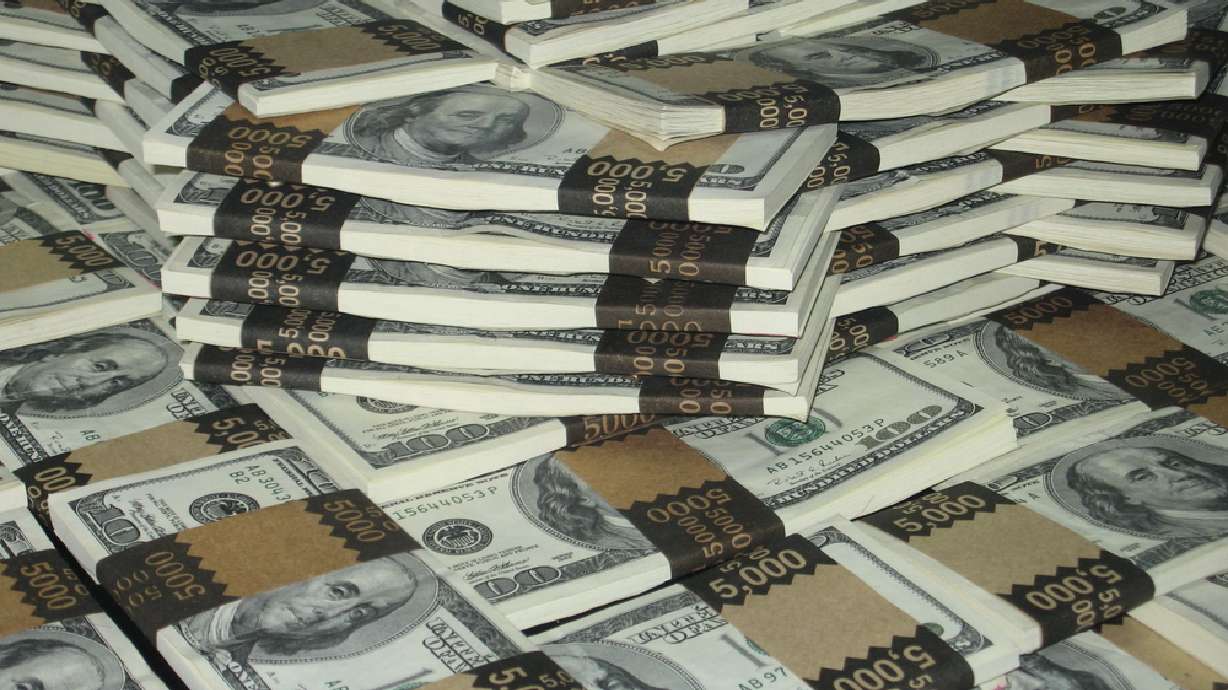Estimated read time: 2-3 minutes
This archived news story is available only for your personal, non-commercial use. Information in the story may be outdated or superseded by additional information. Reading or replaying the story in its archived form does not constitute a republication of the story.
SALT LAKE CITY (AP) — Utah police seized about $2.2 million in cash last year under a law allowing authorities to take someone's property even if they aren't charged or convicted of a crime, a state report showed.
The 2017 report on state asset forfeiture showed virtually all of the money and other assets seized by police came in drug investigations.
In 13 percent of the cases no criminal charges were filed.
The report, released by the Utah Commission on Criminal and Juvenile Justice last week, showed an increase in cash seized by state police over previous years, likely due to a few large incidents, the commission said.
In addition to the cash, police also seized an additional $401,000 worth of property, including several cars and hundreds of gambling machines.
After assets were taken by authorities, roughly $687,000 was routed back to law enforcement and drug courts.
Civil asset forfeiture laws in states across the country have been criticized by civil liberties advocates who say they can be abused by police to shake down suspected criminals without having to file charges. Three states —North Carolina, New Mexico and Nebraska — outlaw civil asset forfeiture entirely and 11 require a criminal conviction for forfeiture proceedings to begin, according to the National Conference of State Legislatures.
Law enforcement agencies say the laws can be critical to dismantling large-scale criminal operations and drug networks while also helping authorities fund key programs or buy equipment.
The average amount of cash seized by Utah authorities was $1,000. Authorities seized as little as $50 and as much as $910,000 in a single incident.
That relatively low average disturbed Connor Boyack, president of libertarian-leaning nonprofit group Libertas Institute, who has pushed to limit asset forfeiture in Utah.
"It creates huge financial disincentive for somebody to hire an attorney and pay several thousands of dollars to try and fight a forfeiture of such a small amount of property," he said.
More than one-third of the seizures were reported by the Salt Lake Police Department, though 24 state and local agencies reported making at least one forfeiture.
After assets are seized, they are placed into a state fund which can then be used to distribute grants to law enforcement services. In 2017 grants were given to state and local agencies for a variety of task forces and to pay for equipment and training such as body cameras, rifles and riot gear.
In addition to the money seized by state officials, Utah agencies also received $1.1 million from federal agencies that seized property from people in the state, including the Drug Enforcement Administration and the Internal Revenue Service.
A case in which a Utah man has challenged police seizure of $500,000 during a 2016 traffic stop is currently pending at the Utah Supreme Court. The man, Kyle Savely, was not charged with anything except a traffic violation and claims that police went around the law to take his money.
Copyright © The Associated Press. All rights reserved. This material may not be published, broadcast, rewritten or redistributed.








